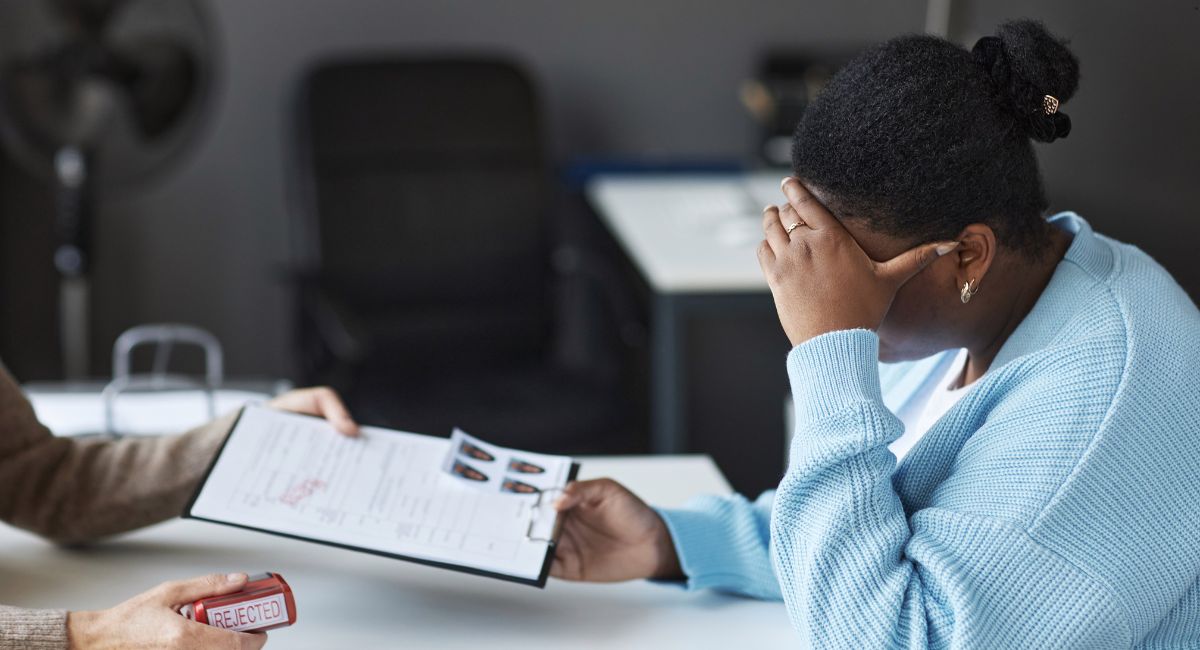At an ACOM ethnic media briefing, advocates warned that immigrant survivors of domestic violence face shrinking protections, harsher scrutiny, and a climate of fear that threatens both safety and justice.
In a recent American Community Media (ACOM) weekly national ethnic media briefing it addressed a growing crisis: the mounting obstacles faced by immigrant survivors of domestic violence. The discussion brought together legal advocates, service providers, and survivors to shed light on how shrinking protections, stricter immigration procedures, and funding restrictions are placing lives at risk.
Moderated by journalist Pilar Marrero, the briefing featured three frontline leaders: Carmen McDonald, Executive Director of the Survivor Justice Center; Morgan Weibel, Director of Client Advocacy and Legal Services at the Tahirih Justice Center; and Patima Komolamit, Executive Director of the Center for the Pacific Asian Family. Adding a deeply personal dimension was Juana, a survivor who shared her journey of escaping abuse and securing legal status through the Violence Against Women Act (VAWA).
The reason for the briefing was clear. Survivors applying for U visas available to victims of violent crime—or VAWA self-petitions, which allow abused spouses of U.S. citizens or permanent residents to apply independently for status, now face longer waits and harsher scrutiny. Recent rulings have gutted asylum protections for gender-based violence survivors, while new restrictions tied to federal funding threaten the very organizations that provide shelter, legal aid, and crisis intervention. Layered over this is the climate of fear created by ongoing ICE raids, which have silenced survivors and driven them away from courts, hospitals, and even schools.
Carmen McDonald: “The silence is not safety, it’s danger.”
Speaking from Los Angeles, Carmen McDonald described how fear is forcing survivors into the shadows. At the Survivor Justice Center, where 70 percent of clients are immigrants, the effects of immigration raids have been devastating.
“When the raids began, the fear spread far beyond those targeted,” McDonald explained. “Survivors went underground. Complaints dropped by one-third—not because the abuse stopped, but because people were too afraid to report.”
She shared examples of clients skipping medical care, abandoning restraining order cases, and avoiding public services. Even schools felt the chilling effect, with summer enrollment in some areas cut in half. “Silence is not safety, it’s danger,” McDonald warned. “When survivors are silenced, abusers go free. When immigrants are too afraid to call the police, everyone is less safe.”
Morgan Weibel: Lifelines under attack
From her national vantage point at the Tahirih Justice Center, Morgan Weibel described how decades of progress under VAWA and related protections are being unraveled.
“VAWA was created because abusers were using immigration status as a weapon,” she said. “For decades, survivors could petition on their own. Now, with new vetting procedures and enforcement policies, even approved applicants risk detention and deportation.”
She explained that U and T visas, meant to encourage reporting of violent crime and trafficking, now come with heightened risks. Denied applicants are no longer left in limbo but placed directly into deportation proceedings. At the same time, asylum claims for survivors of gender-based violence have been undermined by rulings that force applicants to relive trauma in exhaustive detail.
“For unrepresented asylum seekers, it is now next to impossible,” Weibel said. “The erosion of these protections is not just a humanitarian issue, it is a public safety crisis.”
Juana: A survivor’s fight for freedom
The policies became painfully real in Juana’s story. Married to a U.S. citizen military officer, she endured years of abuse. When she called the police, her husband’s uniform often ended the inquiry before it began. “They would look, say everything was fine, and leave,” she recalled.
Alone and without family in the U.S., Juana fled to Mexico with her children, only to return when her abuser kidnapped them. At the Survivor Justice Center, she began the long process of filing a VAWA petition. It took five years, but with patient support, she secured legal residency for herself and her children, including a daughter born in Mexico who needed urgent medical care.
Her message to other survivors was clear: “Any woman, of any nationality, has rights. Don’t give up.”
Patima Komolamit: Funding restrictions choke services
Representing the Center for the Pacific Asian Family (CPAF), Patima Komolamit explained how new federal funding restrictions are undermining decades of progress. Grants from the Office on Violence Against Women and Housing and Urban Development, once lifelines for shelters and crisis services, now come with conditions that align with restrictive executive orders.
“These restrictions don’t just create paperwork,” Komolamit said. “They create fear and doubt. Our job is simple: if you identify as a survivor, we serve you. To be forced to second-guess that work is unconscionable.”
She noted that nonprofits like CPAF exist precisely because government institutions cannot meet these needs. “To threaten our funding is to threaten survivors’ lives,” she said.
A community-wide crisis
Reporters from outlets such as La Opinión and Hungarian ethnic media pressed the panelists with questions: How long are VAWA cases taking? What protections exist for non-English-speaking survivors? How can communities trust law enforcement when local police collaborate with ICE?
The responses underscored both the challenges and the urgency of continued advocacy. Survivors should connect with legal aid and hotlines, because confidentiality protections still exist. And ethnic media must keep lifting up these stories so survivors know they are not alone.
The panelists agreed: immigrant survivors’ struggles are not just private tragedies but public safety emergencies. When survivors remain silent, abusers remain free. When funding is politicized, shelters close their doors. When ICE raids spread fear, entire neighborhoods lose trust in law enforcement.
The call to action was clear; restore and strengthen protections, disentangle local policing from immigration enforcement, secure consistent funding, and ensure survivors know their rights. As McDonald put it: “We need to understand this is not just humanitarian, it’s about public safety.”
#ImmigrantJustice #StopDV #SurvivorVoices #ImmigrantRights #ACOMBriefing #EthnicMedia #VAWA #NoMoreSilence

